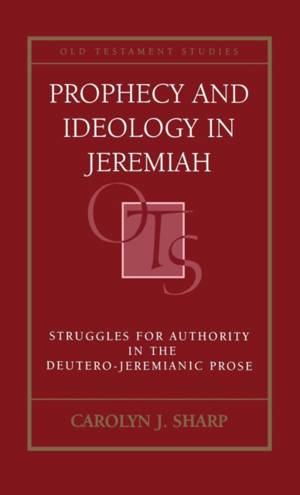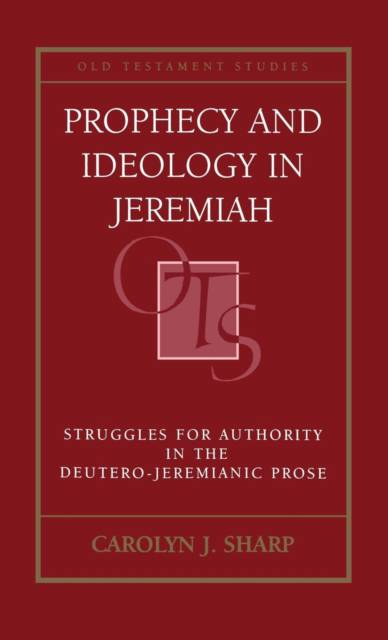
- Afhalen na 1 uur in een winkel met voorraad
- Gratis thuislevering in België vanaf € 30
- Ruim aanbod met 7 miljoen producten
- Afhalen na 1 uur in een winkel met voorraad
- Gratis thuislevering in België vanaf € 30
- Ruim aanbod met 7 miljoen producten
Prophecy and Ideology in Jeremiah
Struggles for Authority in the Deutero-Jeremianic Prose
Carolyn J SharpOmschrijving
This project examines two areas where there are important interpretive problems: the composition of the book of Jeremiah and, specifically, the provenance of and ideological functions served by the text of Jeremiah on the one hand; and the redactional interests in prophecy evident in the Deuteronomistic History on the other. The book argues that two distinct political groups can be seen to vie for theological authority via their literary portrayals of traditions about Jeremiah and prophets generally in the Deutero-Jeremianic prose - a group in Babylon after the deportations of 597 B.C.E. that is attempting to claim political and cultic authority, and a group remaining behind in Judah after 597 that counters the political claims and related interpretive moves made by the Babylonian traditionists. The book then illustrates through analysis of prophetic roles in Jeremiah, Kings, and Deuteronomy 18 that there are substantial and fundamental discontinuities between the view of prophecy and the prophetic word presented in the Deuteronomic texts and the view presented in the Deutero-Jeremianic texts. The results of the present study challenge the widely accepted scholarly thesis of monolithic redaction of the book of Jeremiah at the hands of the same 'Deuteronomists' whose work is evident in the Deuteronomistic History.
Specificaties
Betrokkenen
- Auteur(s):
- Uitgeverij:
Inhoud
- Aantal bladzijden:
- 288
- Taal:
- Engels
- Reeks:
Eigenschappen
- Productcode (EAN):
- 9780567089106
- Verschijningsdatum:
- 1/01/2003
- Uitvoering:
- Hardcover
- Formaat:
- Genaaid
- Afmetingen:
- 162 mm x 224 mm
- Gewicht:
- 471 g

Alleen bij Standaard Boekhandel
Beoordelingen
We publiceren alleen reviews die voldoen aan de voorwaarden voor reviews. Bekijk onze voorwaarden voor reviews.











